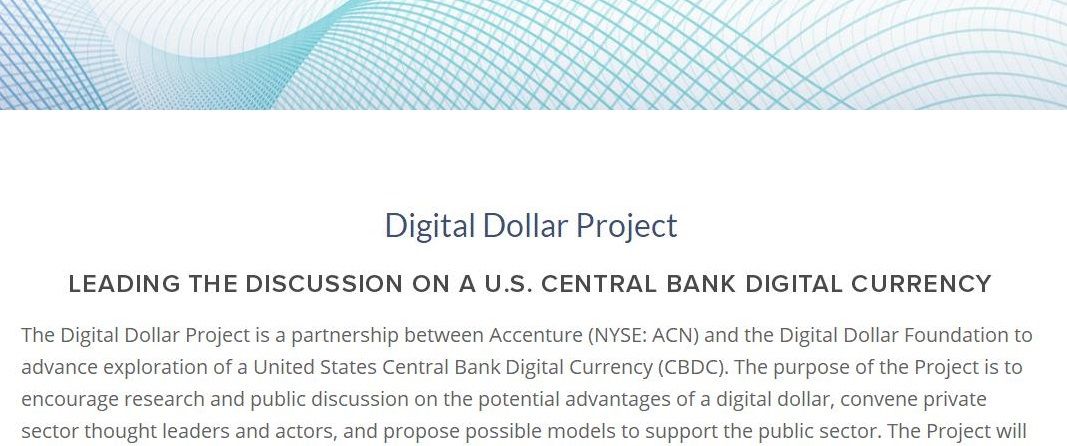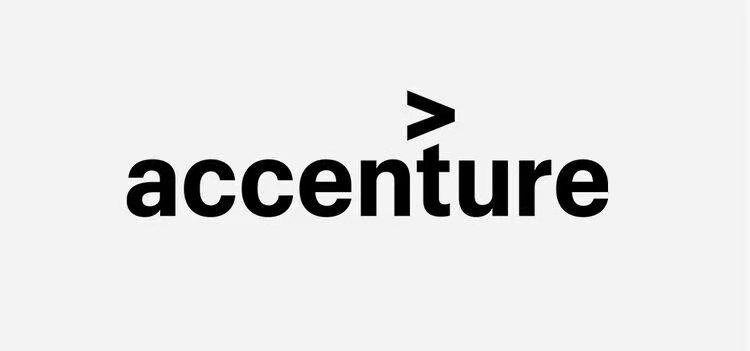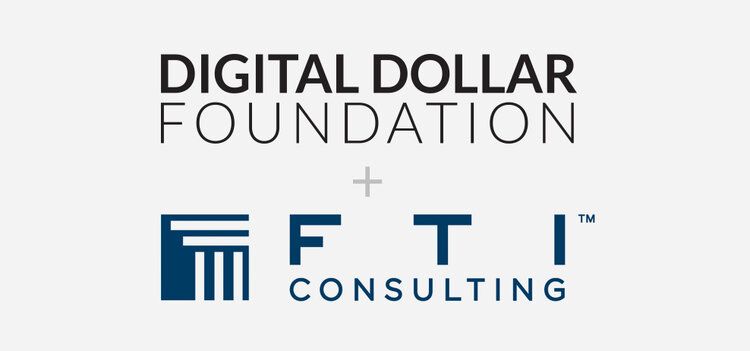About the US folk think tank version of the DCB "digital dollar", you need to know these
A video has recently been circulated in some online communities: in a small Swiss town of Moritz, more than 60 celebrities from the cryptocurrency, regulatory and mainstream fields, such as the founder of stablecoin Gemini, a member of the US Securities and Exchange Commission, and an expert at the Swiss National Bank , Niger government officials, Samsung Electronics Janssen CSO, etc., they held a "secret meeting about cryptocurrency and blockchain investors". In the video, Christopher Giancarlo, the former Chairman of the Commodity Futures Trading Commission (CFTC), introduced the Digital Dollar Project:
"The creation of the digital dollar will be endorsed by the US government, issued by the US government / Fed, and then distributed by the traditional banking system. It will be more than just a stablecoin, but a real electronic dollar."
In 2015, when the central bank's digital currency was just germinating, the American scholar Koening once proposed an idea called Fedcoin, but it was only a folk scholar's proposal. Although it was named Fed, it was mistaken for the Federal Reserve. After four years, the digital dollar project proposed by Giancarlo is the US's CBDC? Or is it the same as Libra or other USD stablecoins?
What is digital dollar?
On October 15, 2019, Giancarlo and another former CFTC official, Daniel Galfan, disclosed the relevant content of the project in an article on WSJ:
- The best activity on the Bitcoin chain for two months, even the handling fee has increased by 89%
- Winter night road, there is light at the end-Babbitt's annual inventory and column author's 2020 outlook
- Blockchain is No. 1 and EQ is on the list. What skills are needed to find a job in 2020?
We have proposed a digital dollar, a blockchain protocol approved by the government, which was created and maintained by an independent non-governmental organization, but managed by banks and other trusted payment organizations. The cash entering the system will be converted into digital dollars on the blockchain, and the cash will be deposited in a special escrow account maintained by the Federal Reserve.
On the official website of the Digital Dollar Project ( www.digitaldollarproject.org ), which was just launched this year, the above ideas have been expanded to the following:

Digital dollars are the numerical representation of dollar debt . US dollar liabilities include federal reserve notes, bank deposits, and other financial market liabilities. As Giancarlo said in Moritz's speech, the digital dollar is an electronic form of the US dollar, or it can be understood that the digital dollar is anchored in the U.S. fiat currency, not the Libra anchored in the legal currency of several countries. Currency basket.
The digital dollar issuer will be the Federal Reserve. This is different from Libra, which is a private coin issuer organized by multiple institutions.
Digital dollars are equivalent to cash and coexist. Digital dollars are fully interchangeable with cash and have the same payment functions as cash. But it will not replace cash. It is a payment tool used in the digital world. Digital dollars are not equivalent to existing electronic money, but have intelligent features such as programmable.
Digital dollars may use a two-tiered delivery mechanism . The Federal Reserve issues digital dollars to banks and regulated payments in exchange for reserves, the latter placing digital dollars on demand to customers, similar to current cash offerings.
Digital dollars are versatile. It can be applied to retail, wholesale and international payments.It can provide instant personal peer-to-peer payments, as well as multiple channels for large payments. It can establish more direct currency relationships in cross-border transactions and solve the shortcomings of the existing correspondent bank model. The digital dollar also has unique advantages in dealing with the depletion of liquidity during the financial crisis and improving inclusive finance.
Digital dollars do not predefine technical routes . The initial stage of the project focused on functional development, exploring the best technical route through valuable. May involve the application of blockchain or DLT, as well as other technological innovations.
Digital dollars are controllable anonymity . All transactions made using digital dollars are trackable, but will "use special terms and technologies to protect privacy and properly balance government interests in accordance with the law."
Digital dollars will be protected by existing laws. The current regulations for the issuance and circulation of US dollars are also fully applicable to digital dollars, and more and more targeted protection measures will also be considered.
What are the goals and plans of the digital dollar project?
To be a global leader in the development of CBDC . "Convene thought leaders and participants in the private sector and propose possible models to support the public sector." Study potential ways to advance the digital dollar symbolization of the United States and its related impact on the US and global economic and financial systems.
Project implementation is divided into multiple phases . The first phase is a few months. A core team consisting of the Digital Dollar Foundation and Accenture Consulting, including members of economists, technical experts, lawyers, scholars, consumer rights groups, human rights experts and ethicists, will Extensive discussions on the preliminary design and recommendations of the digital dollar, as well as plans for piloting, testing, learning, and improvement. At the end, the research results were submitted to major stakeholder groups and decision makers, and proposals for expanding the pilot phase in the next phase were proposed. At present, the first phase of work has begun. In the first half of 2020, a series of stakeholder group meetings, round tables, forums, etc. will be convened, and relevant information will be released to the public.
Who are the digital dollar project team and partners?
The project team is the Digital Dollar Foundation, a non-profit organization. The principals Christophe Giancarlo and Daniel Galvan both have a CFTC background in the United States (belonging to the government financial supervision department). Giancarlo was the chairman of the CFTC. He has also served as a member of the US Financial Stability Regulatory Commission; Golfan is the Chief Innovation Officer of the CFTC.
There are two main partners. One is Accenture. This institution is famous in the global CBDC research and development. The Digital Dollar Foundation also specifically explained why it chose it:
(Accenture) has established itself as a market leader in CBDC. Globally, Accenture's CBDC work includes cooperation with the Bank of Canada, the Monetary Authority of Singapore, the European Central Bank, and the recent signing of agreements with the Bank of Sweden to develop e-krona in a test environment.

Accenture is found in the Bank of Canada's Jasper project, the Singapore Monetary Authority's Ubin project, the European Central Bank's European chain, and Sweden's eKrone solution. The developer who chose it as a digital dollar is precisely to take advantage of its technical advantages in CBDC research and development to create a digital version of the US fiat currency.
Another partner is FTI Consulting, a global business consulting company based in Washington, USA. FTI Consulting is a global business consulting company whose businesses include corporate finance and restructuring, economic consulting, forensic and litigation consulting, strategic communications And technology, participated in the bankruptcy of Lehman Brothers and General Motors, Bernard Madoff's fraud investigation, Bush v. Gore, and chose it as one of the partners to provide strategic communication for foundations and projects stand by.

4. Is digital dollar the official version of the dollar?
The proposal of the digital dollar solution is related to factors such as the relatively backward research and development of CBDC in the United States and the international challenge of the US dollar. More than two-thirds of the world's central banks are exploring new payment technologies and methods, including central bank digital currencies. Although there is currently no official application of a major country, it has been discussed in depth, for example, Canada, Sweden, China, Europe The central bank and other digital currencies developed by some private institutions have also made considerable progress in exploring cross-border payments, such as those introduced by Goldman Sachs, JP Morgan Chase, Mitsubishi UFJ Finance, and Wal-Mart. In contrast, U.S. officials have always been conservative and cautious about the development of CBDC. One is the unrivalled advantage of the US dollar in global reserve currencies and settlement currencies. The other is the lack of openness to the development and application of new technologies. Bringing more negative effects, the official exploration has made little progress.
The digital dollar project proposed by people with a background of government officials and developers with a background of developing CBDC is now clearly different from those virtual currencies or stable coins created by digital geeks, such as Libra, Tether, etc. Although it is still in the early stages of collecting suggestions and discussing solutions, from the perspective of the goal, it is a role of a folk think tank , bringing together multi-disciplinary experts and scholars, and exerting their intellectual talents to propose design and proposal solutions for the development of the US's CBDC and conduct trials. Make the best choices for decision makers, which is what the foundation says:
The digital dollar should help strengthen the Fed's mission … and it can also provide the Fed with analysis and insights to help improve monetary policy.
There are many similar think tanks in the United States, such as Rand, Brookings, Carnesen, Peterson, etc., which have an inestimable influence on the government's political, economic, military, and foreign policy. Although the Digital Dollar Foundation cannot be compared to it, it should be a force to be reckoned with in the future US CBDC exploration.
We will continue to update Blocking; if you have any questions or suggestions, please contact us!
Was this article helpful?
93 out of 132 found this helpful
Related articles
- The former chairman of the CFTC led Accenture to guarantee that the digital dollar will be far behind?
- Blockchain Applications from the Perspective of Legal Persons: Taking the Judicial and Supply Chain Finance Fields as Examples
- Analysis: Is there any real usage scenario for Bitcoin?
- Developing blockchain is an action to save the Internet?
- Depth: How far is the cryptocurrency ETF in the future?
- Blockchain changes 2020: start business without “bringing funds into the group”
- Blockchain is used for the first time to gather the five blessings: What is the experience of “blessing” sharing on the chain?





